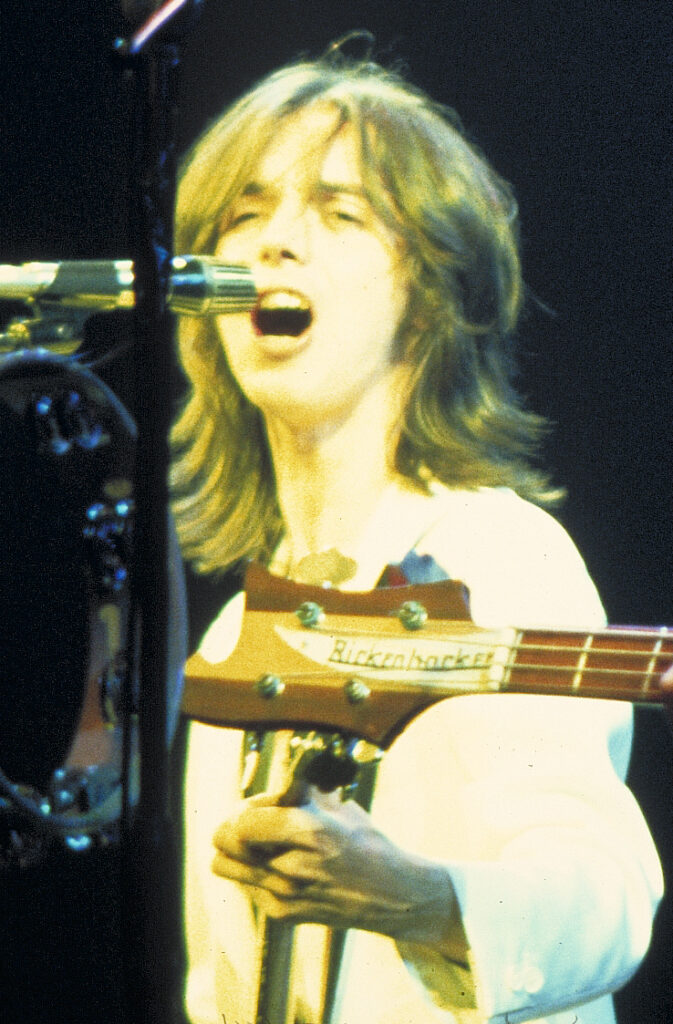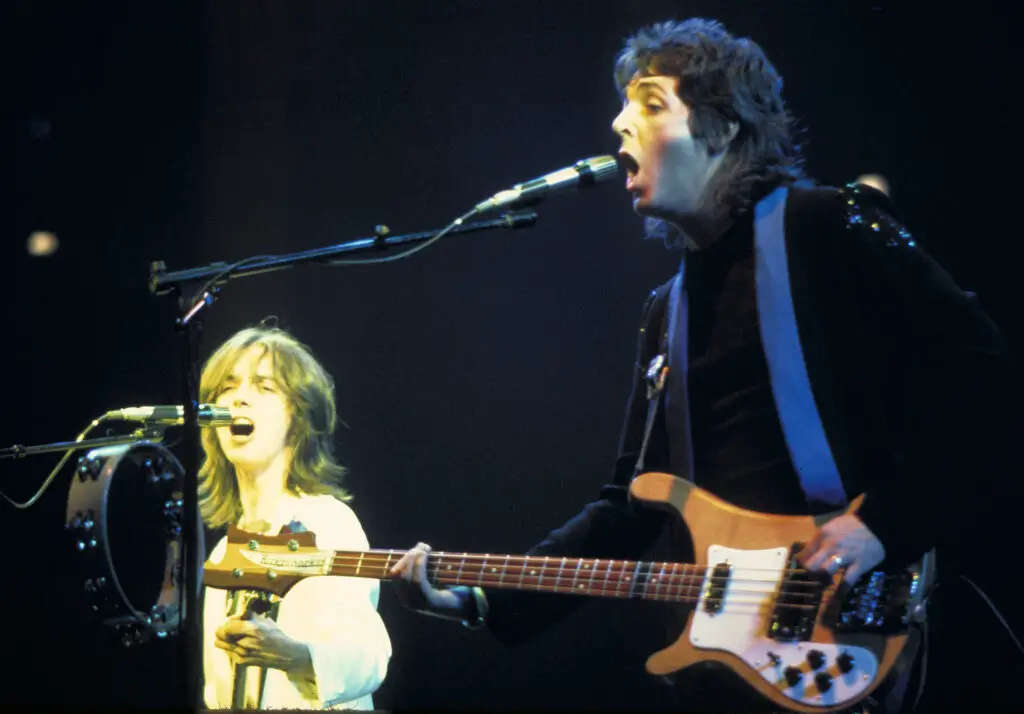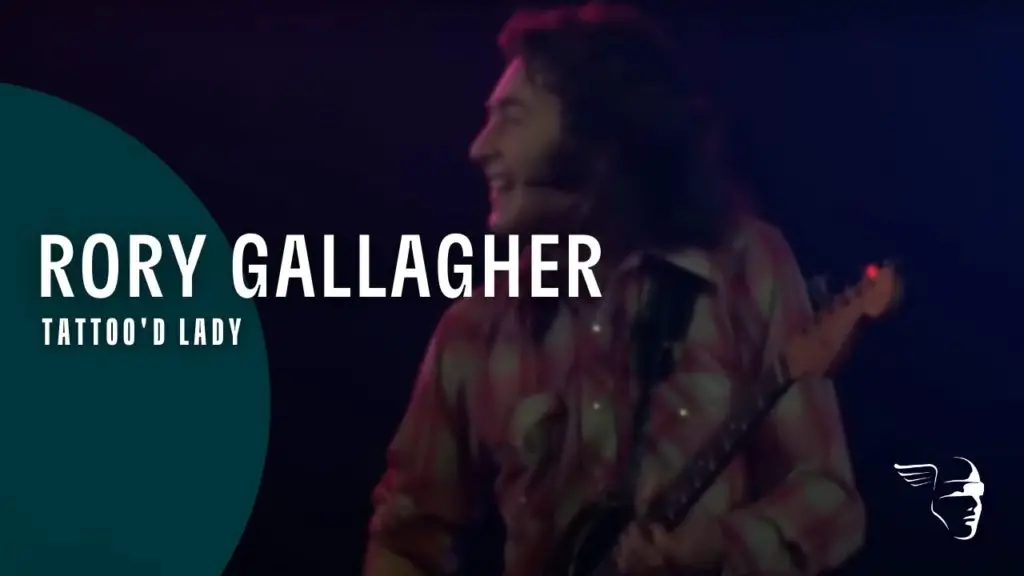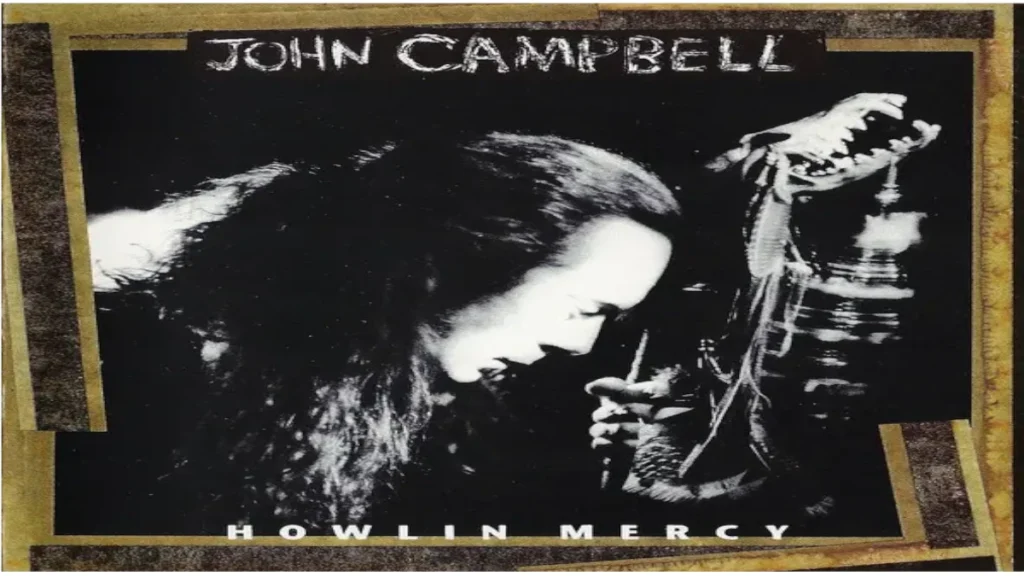Immerse yourself in a journey through time, exploring the electrifying realm of Jimmy McCulloch, a guitar virtuoso with a timeless legacy. Through an intricate exploration of McCulloch’s life and musical genius, this informative journey offers multidimensional insight into the man behind the captivating solos. From this exploration of McCulloch’s upbringing and musical beginnings to his unique guitar techniques, we dissect the melody medleys, rhythm patterns, and the ingenious fusion of blues and rock that enriched his sound and stood him apart from his contemporaries. Delve into the core of some of McCulloch’s most iconic solos, revealing their complexity, emotional candor, and the technical execution layered within. This journey sheds light on the enduring legacy of a musician whose artistry resonates to this day.
Understanding Jimmy McCulloch: The Artist behind the Solos
Undeniable Passion: How Jimmy McCulloch’s Melodic Meteor Left A Lasting Impact
Tangent lines between souls and melodies, the language of emotion, therein beats the heart of music. Amongst its myriad maestros, one star that shot across the firmament, leaving an indelible trail, was Jimmy McCulloch. A sonic prodigy, his cosmic impact on music perpetuates in the world’s collective consciousness.
McCulloch was born in Scotland in 1953 and was only 11 when he got his first guitar. Fame beckoned early and brightly; at 16, he was tiptoeing on the precipice of eminence, playing guitar for Thunderclap Newman. On their UK chart-topping track, “Something in the Air”, his consummate articulation of notes vibrated harmonious echoes, pronouncing his arrival on the grand musical stage.
Propelled by the winds of this newfound success, McCulloch’s notes ascended divine spheres as he resonated with Wings, Paul McCartney’s post-Beatles ambition. His sonic brilliance, captured in hits like “Junior’s Farm” and “Live and Let Die”, served as a compelling testament to an artist cresting his towering potential. Whatever tone was sought, McCulloch’s guitar would find it with dextrous determination – a conduit for a symphony of emotion, bristling with passion, grief, ecstasy, and yearning.
Beyond Wings, McCulloch added his signature to signature tunes, jamming with the veritable titans of rock – The Who’s Pete Townshend, John Mayall, and Denny Laine, to name a few. His transient journey with each of these virtuosos resulted in a confluence of genres, invariably leaving a conspicuous sparkle of his impassioned artistry in their tracks. His soaring spirit of exploration at such intersections defied temporal and thematic constraints.
McCulloch’s meteoric rise, like all shooting stars, came with an ephemeral lifespan. At the mere age of 26, he succumbed to a haunting crescendo, leaving the stage far too soon. Nevertheless, his tunes continue to throb in the hearts of millions – a testament to his talent’s immortality, his legacy immortalized in each strum, and breath of harmony.
The chapters he inked during his brief sojourn in the world were tales of raw talent and relentless ambition, expressed in the universal language of music. This exploration of Jimmy McCulloch isn’t merely about acknowledging the artist, but about experiencing the man behind the melodies. He was not just a contributor, but an iconic catalyst, fostering the evolution of music itself by blurring boundaries and building bridges across musical genres.
McCulloch’s life, as short as a resonating guitar pluck yet as profound as its lingering echo, validates the eternal truth about music: it is an unfading melody carved into the sands of time, a perennial symphony reverberating in hearts and souls across the ages. His story is a love letter to the ethos of music – expansive exploration, unceasing passion, and collective unity. To trace his journey is to delve deep into a fervent love for music and its limitless potential, each note a testament to the life and times of this electrifying artist. Immersed in this journey, one realizes why McCulloch, like a shooting star, streaked briefly yet brightly across the sky, illuminating the universe of music forever.
Remembering McCulloch, one cannot dismiss that fervor in his eyes, matching the nimble fingers as they danced across fretboards in a choreographed chaos of creation. His life, his work, serve as an enduring reminder that in the grand symphony of life, it’s not merely about how long you play, but how passionately you pour your soul into each note. The legacy he gifted humanity – a comet tail of melodies – has truly left a lasting impact, echoing in the ether of music history.
Dynamics of McCulloch’s Guitar Techniques
Perhaps it was the ethereal beauty of his melodies or its the raw, uninhibited emotions they conjure up, but delving into the world of Jimmy McCulloch’s guitar playing is a venture that enchants listeners even today.
What made Jimmy McCulloch’s guitar riffs stand out were not complex, intricate musical arrangements, but rather his ability to mesh simple, melodic lines with an atmospheric soundscape. It was this skill, often leveraged with a slide, that created the haunting, otherworldly resonance in many of his tracks. His slide technique was imbued with a characteristic touch that was vastly different from his contemporaries’ style. The listener was, and still is, captivated by the nuanced expression and the subtle implication each note carried, a silent whisper of the depths of his artistic reach.
McCulloch had a unique ability to fuse diverse musical elements. He was unafraid to blend styles, often integrating rock n’ roll aggression with the ethereal beauty of folk-inspired melodies and blues-infused harmonies. This amalgamation of genres established a distinctiveness, a signature of McCulloch’s style, that was hard to miss.
His solos were never just flashy displays of technical prowess. Instead, they formed an integral part of the song, as if an intrinsic narrative woven into the musical tapestry. Each note had a story to tell, each string had a feeling to convey. His execution of these solos was so effortlessly intense and vibrantly expressive that it was akin to as if he were creating a pictorial mural on the canvas of silence.
With any McCulloch track, one quickly realizes that ‘less is more’. His mastery lay in undercutting rather than overplaying. He held an inherent understanding of musical dynamics, knowing exactly when to hold back and when to let loose. This balance between restraint and release was not just a testament to his immense talent, but was also an influential factor in shaping rock guitar as we know and love it today.
McCulloch also mastered the art of understated yet highly emotional rhythm guitar playing. His rhythm work was delicate, complementary rather than dominating, and served as a hypnotic foundation to the other elements of the ensemble. It’s this subtlety in syncopation, this masterful use of chords and harmonic transitions that earmarked Jimmy as one of the most influential rhythm guitarists of his era.
Jimmy McCulloch implored his listeners to not merely hear but listen, to not just enjoy but to feel, every strum, every pluck, every vibrant hum that escaped his guitar. Through his craft, he painted a profound illustration of the potential of music; not just to entertain, but to move, to inspire, to express and to unite. His legacy serves as an inspiration, a benchmark for would-be guitarists, and his contributions to the music scene continue to echo through time, keeping the spirit of rock n’ roll alive and thriving unscathed.
The Iconic Solos: A Closer Analysis

Delving into the spectrum of solos that have been etched into the chronological audio tapestry by Jimmy McCulloch, it becomes immediately clear that his musical prowess and touch with the guitar has left an indelible mark on rock music. The timeless gifts that he brought forth into the musical arena resonate today and continue to inspire generations of musicians. Let’s attempt to unfold the enigma of the solos that McCulloch contributed to the world highlighting some of his best work.
When McCulloch’s fingers danced on the strings for “Medicine Jar,” a track from Wings’ ‘Venus and Mars’ album, the result was a solo encapsulating raw emotion and power. This solo exemplifies McCulloch’s inventiveness, a perfect fusion of force and subtlety that reveals the depth of his musical understanding. It’s a melodic outpouring that resonates with the song’s message of the pitfalls of addiction, a poignant and haunting message given his own struggles.
Moving along the well-tread path of McCulloch’s illustrious career, one could not possibly overlook his solo in “Junior’s Farm.” This solo came to life during his time with Wings, and it’s a blistering showcase of his rock sensibilities. McCulloch capitalizes on a delicious angular melody, crafting an ascending crescendo of excitement with masterful flavor. It serves as a testament to McCulloch’s ability to blend intricacy with raw power.
McCulloch’s solo on “Same Mistakes,” a track by The Dukes, echos a certain melancholy resonance that embodies the song title. Like a humble confession, the solo layers heartfelt expressions with delicate tonal harmonies in its poignant evocation. Dipping and soaring in response to the universal human propensity for regret, McCulloch sculpted a beautiful sonic narrative.
For many music enthusiasts, the endearing beauty of “Wino Junko” cannot be ignored. McCulloch’s solo in this song is as intoxicating as the title suggests. With a stylistic fluidity that borders on ethereal, his guitar work on this track smooths out the emotional edges with its ease, sophistication, and warmth. It’s a languid and bluesy solo, offering a completely different sound palette that underscores McCulloch’s versatility.
These solos epitomize the profound talent that McCulloch embodied. His solos are not mere intervals of flashy technique or note-heavy displays; they’re intricate enchantments in the realm of rock. They unveil the depth and diversity of his musicality, illustrating McCulloch’s sensitivity to bring emotional clarity to his musical visions.

McCulloch’s Lasting Legacy
Capable of taking listeners on an unforgettable sonic journey defined by soaring highs and poignant lows, Jimmy McCulloch’s music continues to affect musicians and fans alike. His tenderly raw and deeply personal guitar solos, such as those seen in “Medicine Jar”, “Junior’s Farm”, “Same Mistakes”, and “Wino Junko”, resonate in ways few others can. Each solo, an intimate window into McCulloch’s passionately beating heart, has inspired countless musicians to harness the power of their own emotions, weaving them into the fabric of their music.
How, though, does McCulloch accomplish this? Beyond the early fame, collaborations, and tragic end, lies an artist whose medium was not merely music, but raw emotion and personal experience. McCulloch’s solos, filled with life’s pain and euphoria, are windows into his soul that transcend the boundary of times. Each note rippled with emotion and truth, catching the listener in a surge of feelings that reflected the human condition.
In “Medicine Jar”, McCulloch weaved together powerful narratives of frustration and longing, demonstrating a prolific understanding of the intricacies of the human emotional spectrum. His every note was a piercing cry from the heart, provoking an emotional response even decades after.
Just as intriguing is the compelling solo from “Junior’s Farm”. Despite the upbeat rock foundation, the solo plunges into a maze of complex emotions, once again displaying McCulloch’s ability to thread intricate emotions into what would otherwise be a straightforward rock composition. This remarkable solo pulls at the heartstrings and pushes the boundaries of rock music.
In contrast to the upbeat journey of “Junior’s Farm,” “Same Mistakes” exposes a more introspective and melancholic side of McCulloch. The solo is a poignant echo of regret, the haunting melody resonating with a clear sense of nostalgia. Again, the audience sees the imprint of an artist who is unafraid to use his music to document his own human experiences.
The intoxicating beauty of “Wino Junko”, punctuated by McCulloch’s iconic guitar solo, showcased his never-ending versatility. Every note shimmered with a kind of vulnerability that could not be feigned or forged, proving that McCulloch was not just a musician but a virtuoso in expressing what lies at the crux of every human soul.
The sustained impact of McCulloch’s talent, innovation, and vulnerability paved the way for musicians to elevate their craft into a canvas of self-expression. This ripple effect continues to shape and color the musical landscape, inspiring countless musicians to be unafraid of baring their souls and utilizing their craft as a platform for connection and understanding.
Jimmy McCulloch, the soaring comet racing across the music universe, left an indelible one. His life, though fleeting, was a testament to the immense power of music to not just entertain but tell tales, to touch hearts and stir souls, to connect individuals across time and space — and for this, the music world is forever indebted.
Jimmy McCulloch’s life might have been ephemeral, but his impact on music is enduring and profound. His unique blend of rock, blues and soul, encapsulated within his immersive solos, continues to reverberate through the music industry, inspiring generations of musicians. From the tributes paid to him, covers of his pieces performed by renowned artists, and his music’s perpetual reception, McCulloch’s music keeps on living. His legacy transcends time, his music embarks on a never-ending journey, echoing in the annals of rock history and reminding us all of the musical genius that was, and continues to be, Jimmy McCulloch.
Cover Photo Credit “Jimmy McCulloch – Wings – 1976” by Cropped version by Howcheng; original photograph by Jim Summaria. is licensed under CC BY-SA 3.0


